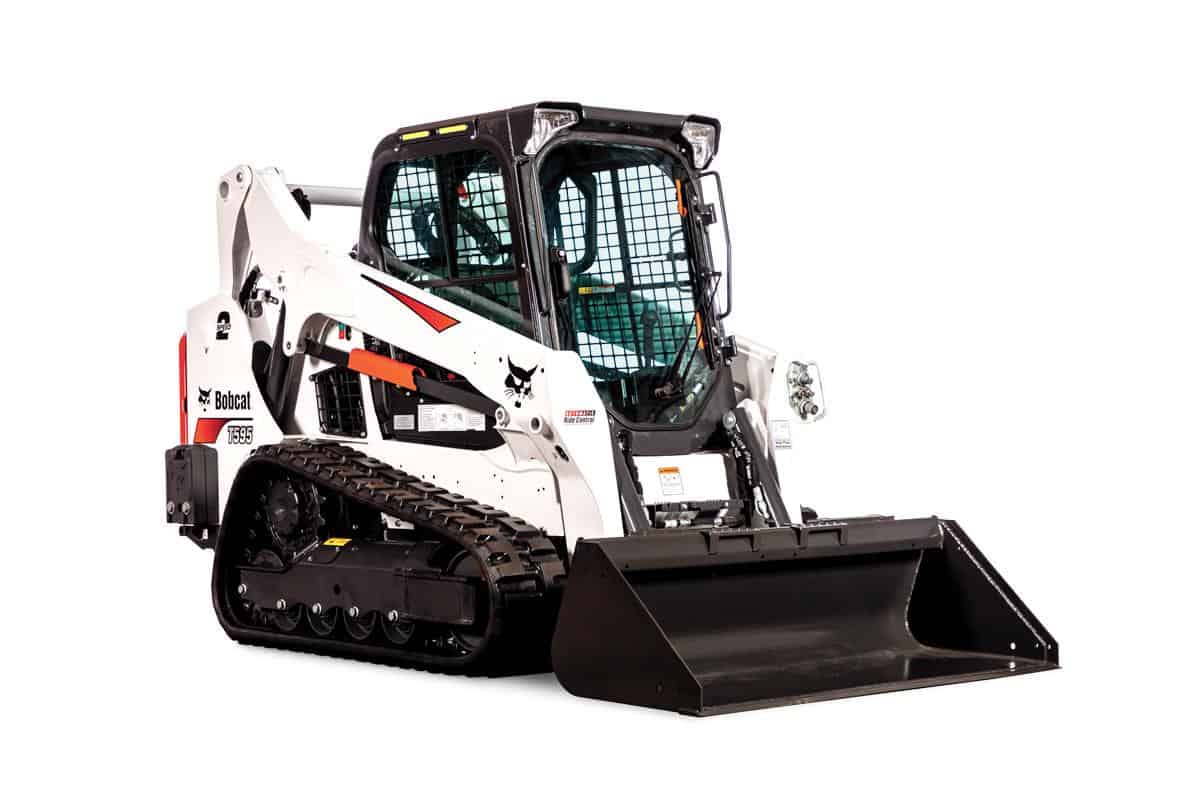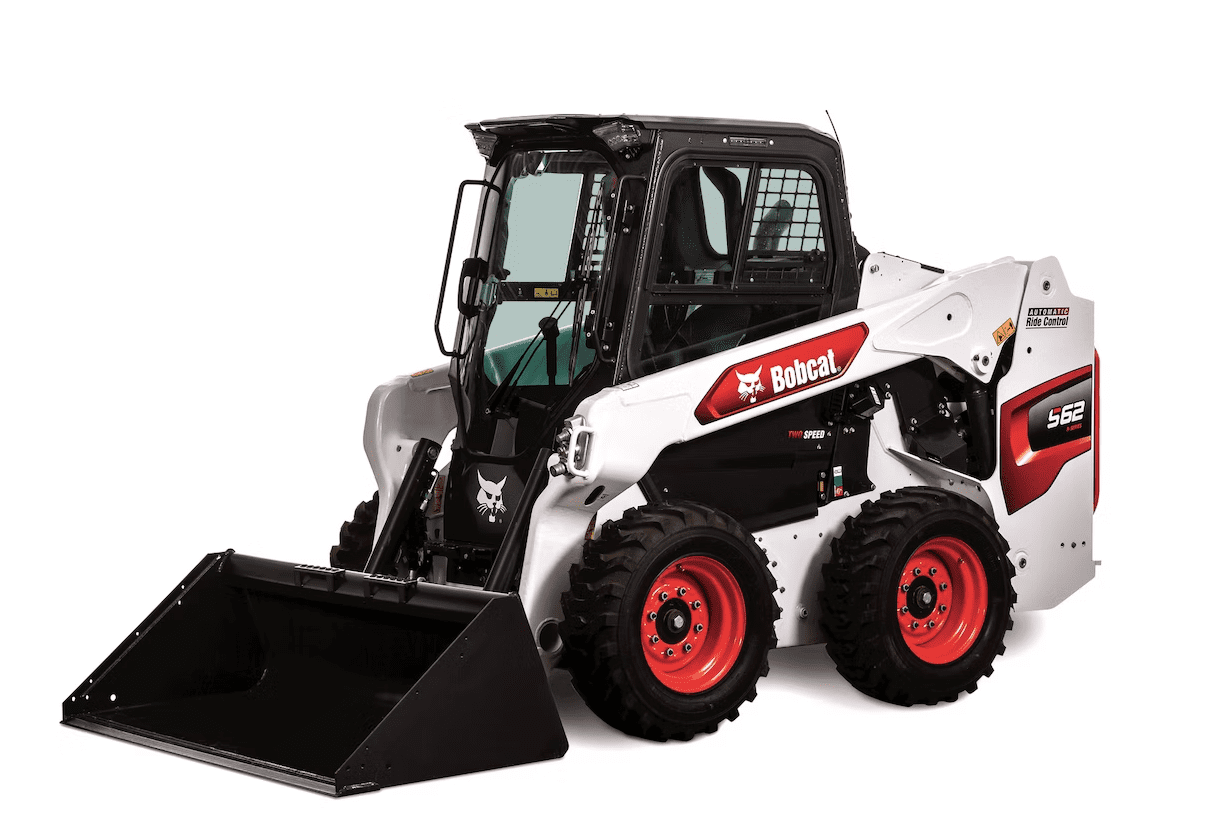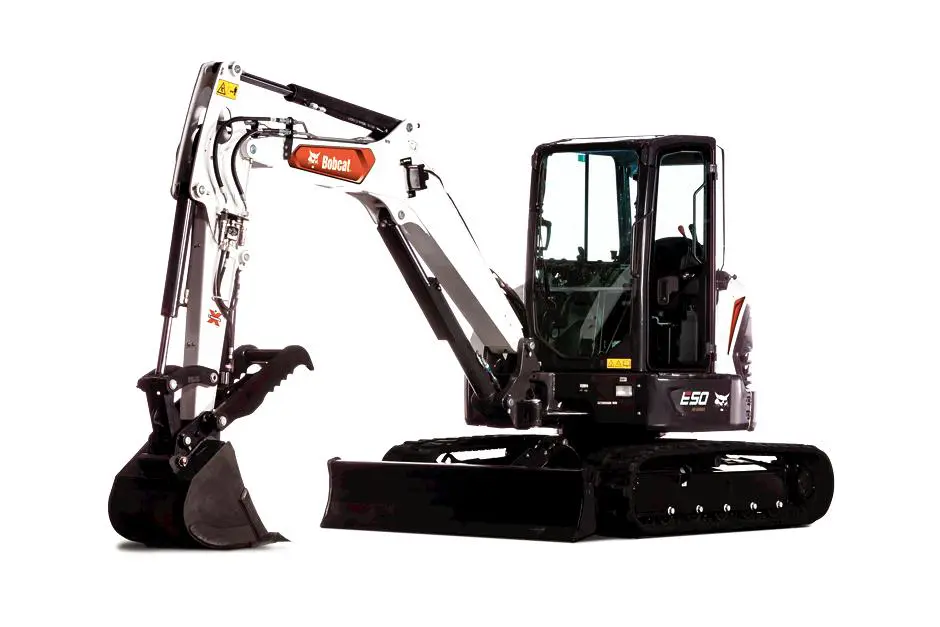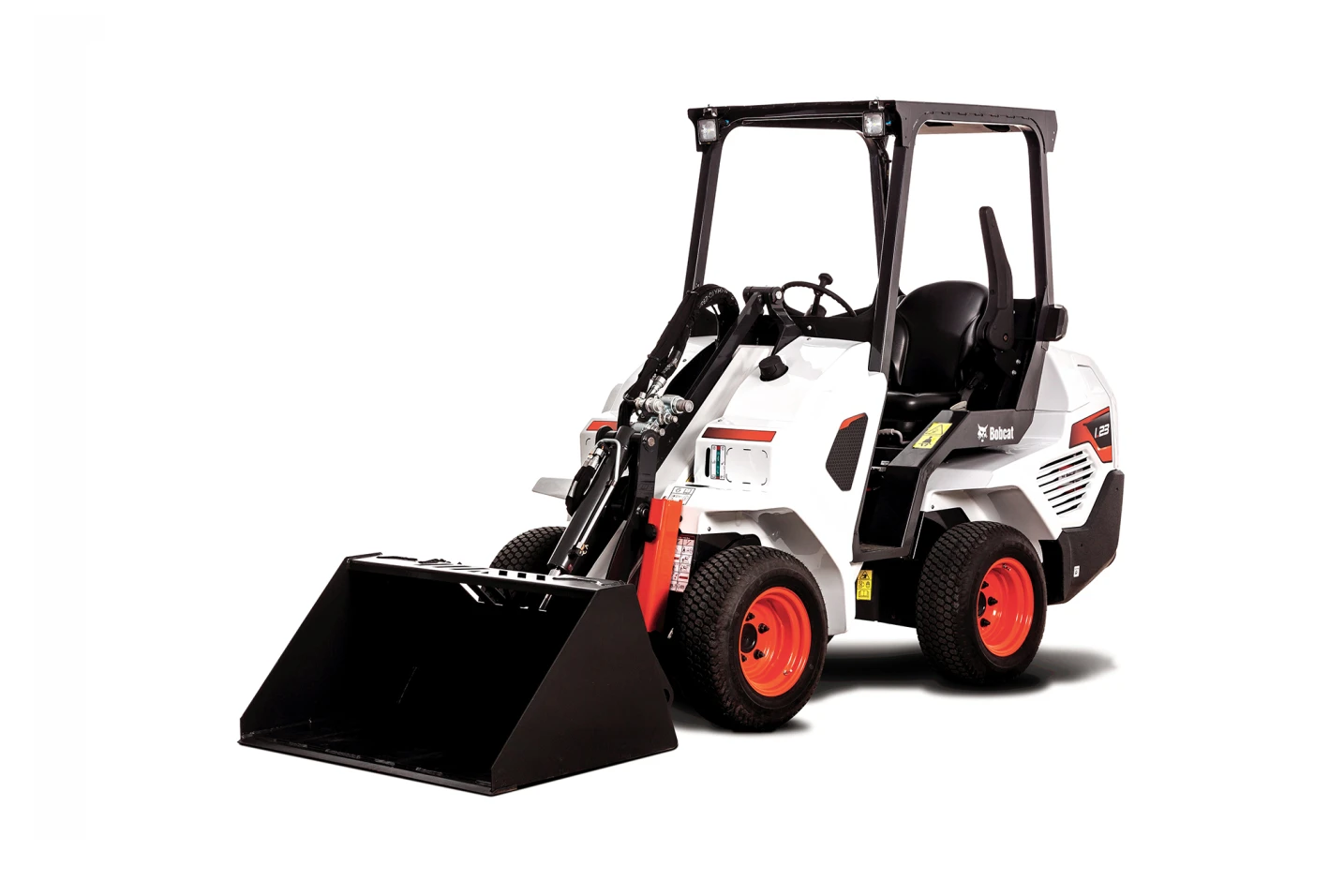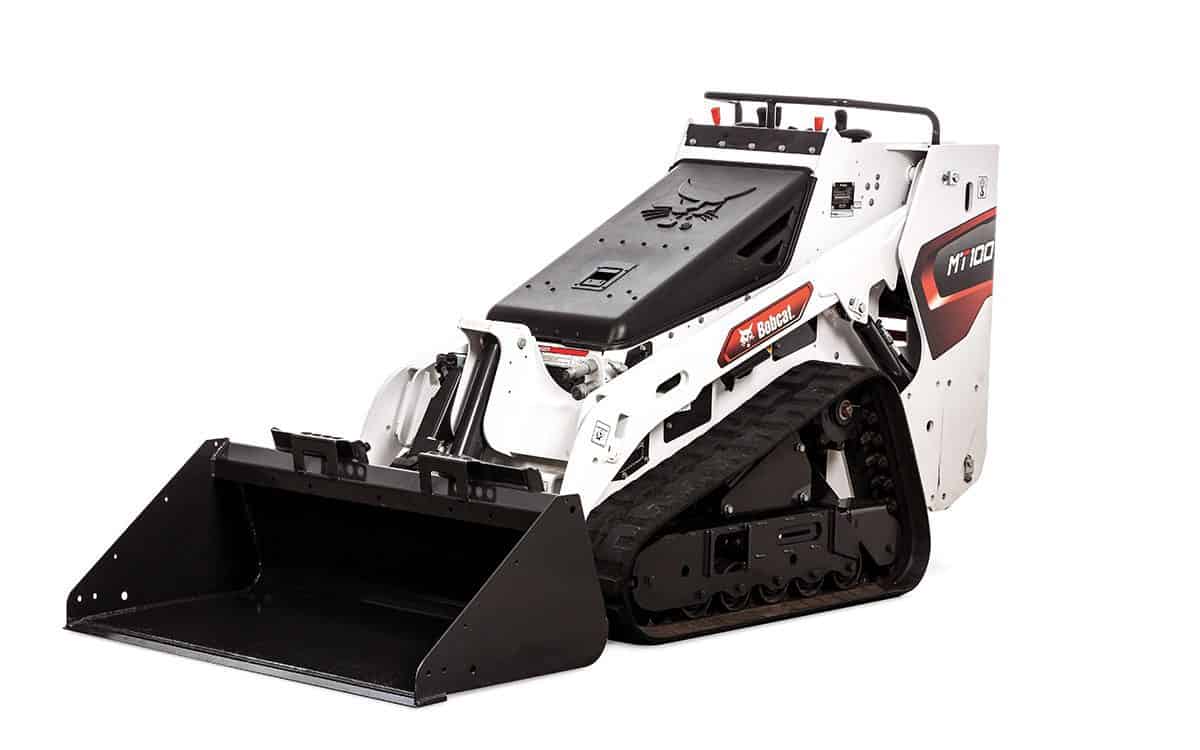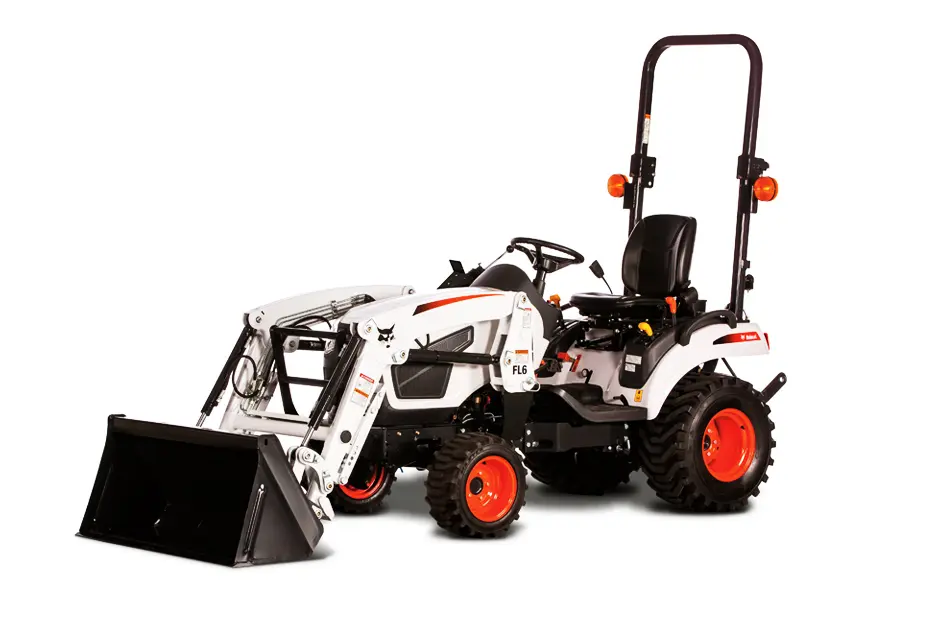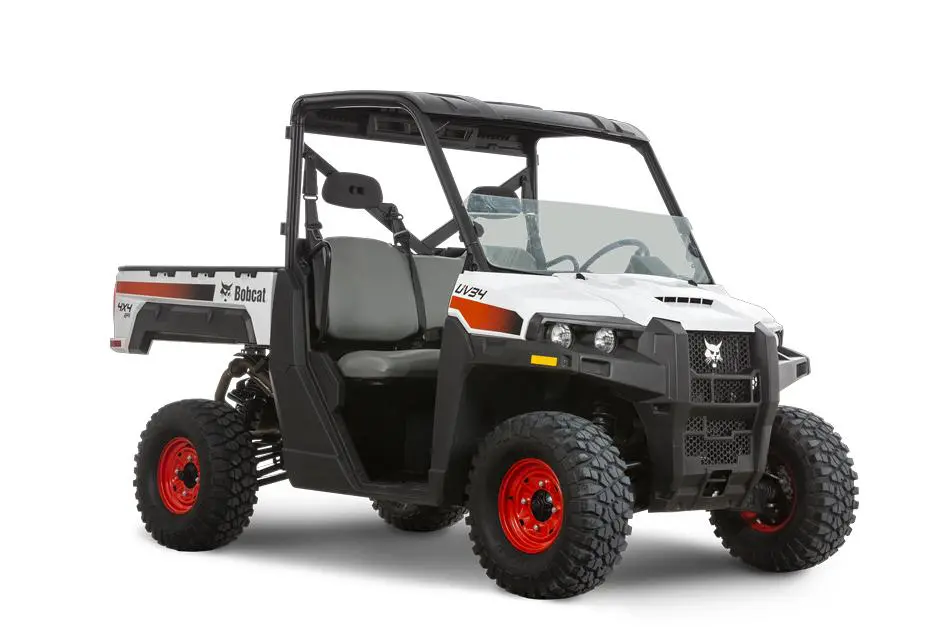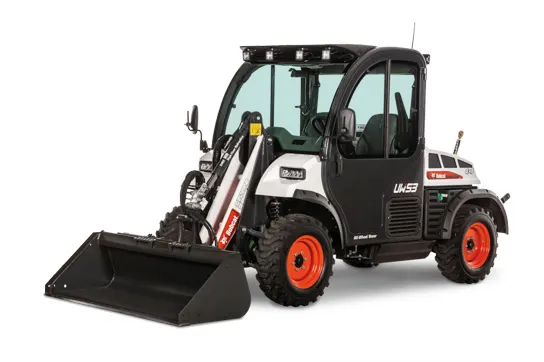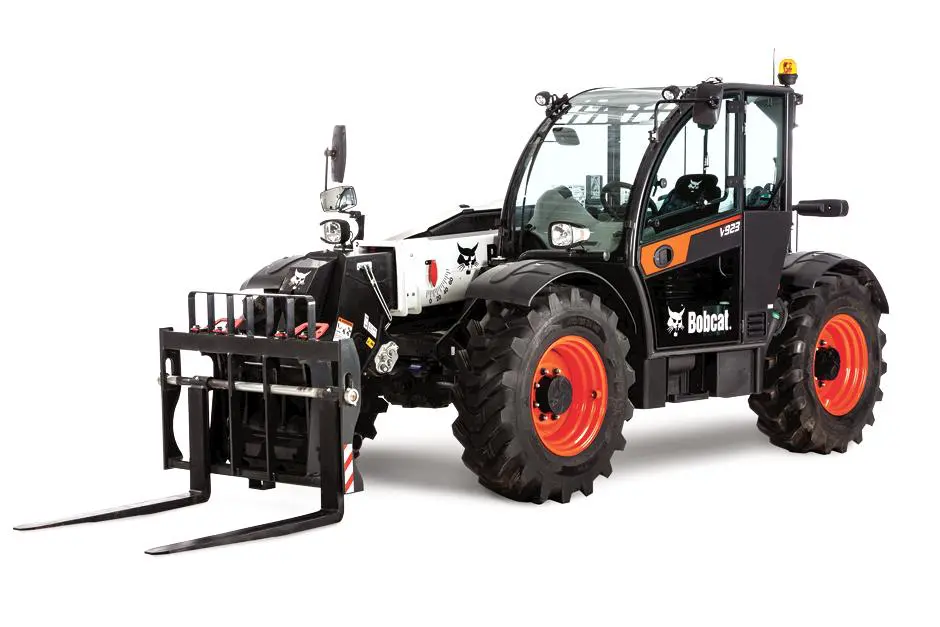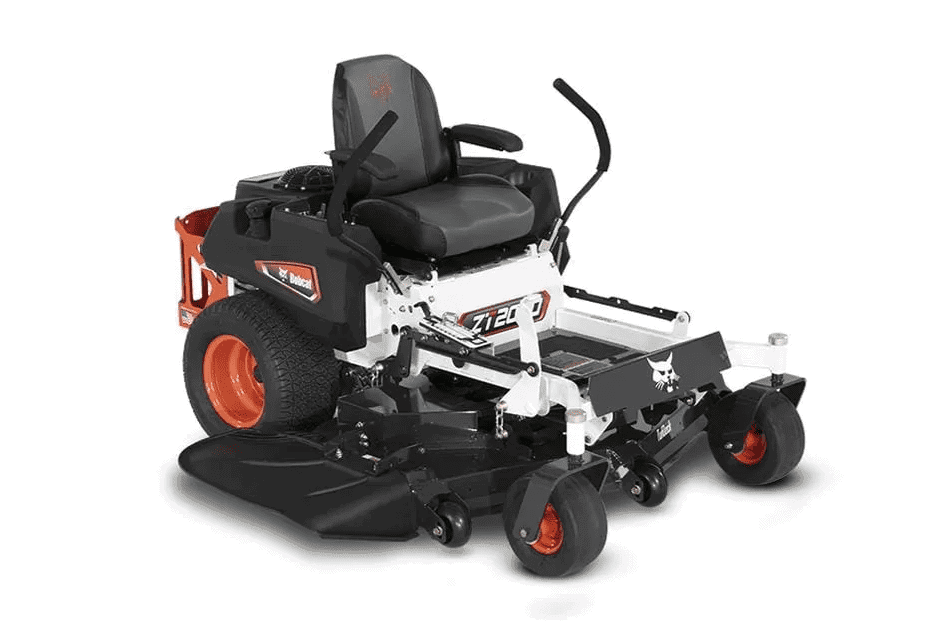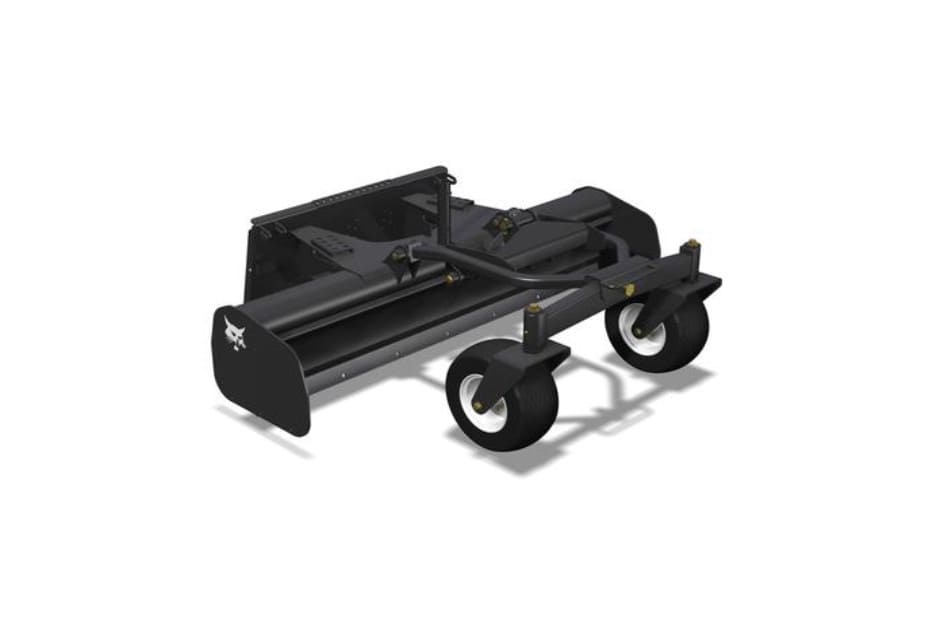Competitive Comparison: Bobcat T76 vs. Cat 289D3 Compact Track Loader
If you’re comparing the Bobcat T76 to the Cat 289D3 loader, here are the top things to know:
- You’ll get a more maneuverable machine and a higher fuel capacity from the Bobcat T76 vs. the Cat loader – with no sacrifice in rated operating capacity (ROC) or horsepower.
- The T76 boasts a higher hinge-pin height than the Cat model for superior dumping ability at the top of the arm’s reach.
- If you have a need for speed, the Bobcat T76 has a faster 1-Speed and 2-Speed.
- Highly responsive selectable joystick controls allow for super-precise movement and better control in the Bobcat T76.
- There’s a panoramic view from the cab of the Bobcat T76, with a clear-side enclosure option, big windows and standard LED lights.
- Patented 5-Link torsion suspension undercarriage and automatic ride control give the T76 a smooth ride.
- The T76’s non-DPF engine cuts the risk of pricey maintenance costs and downtime.
Keep scrolling for a more detailed look at these two models.
Get a head-to-head look at two powerful compact track loaders: the Bobcat T76 and the Cat 289D3.
Shopping for a compact track loader should be as easy as using a compact track loader on your construction or landscaping jobsite. Unfortunately, the sheer quantity of choices can overwhelm even the most determined operator. But never fear: We’re here to help you make the right pick with our side-by-side comparison of two popular compact track loaders: the Bobcat T76 and the Cat 289D3.
Size and Performance Comparison
Right away you’ll notice the compact package of the Bobcat T76 vs. the Cat 289D3. The Cat model is wider, longer, taller and heavier at 10,668 pounds compared to the Bobcat model’s nimble 10,250 pounds. But don’t be fooled into thinking the T76’s smaller dimensions make it weak; the Bobcat model has a nearly identical rated operating capacity (ROC) to the Cat model – 2,900 pounds vs. 2,890 pounds for Cat – but its smaller size makes it more maneuverable than the 289D3. The T76 also matches the 74-horsepower, turbocharged engine of the Cat model and packs more fuel capacity into its small-but-mighty frame (31.7 gal to Cat’s 27.7 gal), giving you more working hours without refueling. So if you’re looking for a machine that fits in super-tight spaces yet can still crank out powerful reps, the Bobcat T76 has the advantage over Cat.
Both Bobcat and Cat models use a vertical lift arm, so each works well for the typical loading, material handling, backfilling and dumping-over-the-side-of-a-dump-truck maneuvers you expect from a compact track loader. However, the Bobcat T76 boasts a higher hinge-pin height – a slam-dunk-worthy 128.3 inches to the Cat 289D3’s 125.1 inches – giving you superior dumping ability at the top of the arm’s reach.
Control and Accuracy Comparison
At this size class, you’re looking for a compact track loader with the power of a linebacker but the precision of a surgeon. The Bobcat T76 rises to the challenge. While the Cat 289D3 is content to settle for so-so controls, the Bobcat T76 gives you incredibly responsive selectable joystick controls that allow for super-precise movement, as well as drive lift/tilt compensation, speed management, steering drift and drive response. Running the controls on the Cat model vs. the Bobcat loader feels like the difference between making it work (Cat) and relishing the joy of your work (Bobcat).
When it comes to relishing work, both the Bobcat and Cat compact track loaders excel at dual-direction attachment leveling – keeping the attachment on an even keel when the arms lift up as well as lower down. So neither machine will embarrass you by dropping a pallet of bricks at the wrong time or letting an expensive bucketload of animal feed slip on the way to the feeder. However, only the T76 gives you the option – at the push of a button – to choose how you want to level your attachment: on the way up only or both up and down. You’re in control.
Visibility is key to safely and successfully operating a compact track loader, and here Bobcat has Cat beat. Not only does the Bobcat T76 come standard with bright LED lights perfect for nighttime construction jobs and low-light barn conditions, but the Bobcat model boasts you-have-to-see-it-to-believe-it views from the operator’s seat. The T76 benefits from a new lift arm design featuring strong, slim cast-steel construction, which gives you a clear view to the cutting edge in front as well as side views down to the tracks. You can even opt for the clear-side enclosure option to get a better view of the jobsite all the way around. By comparison, the Cat 289D3 comes with standard halogen front lights that lack the luminosity of LEDs, and a mesh-covered windowed cab.
Loader Attachments Comparison
The Bobcat and Cat loaders are a solid match when it comes to attachment capabilities. Both manufacturers offer smart coupling systems that make it easy to switch and swap attachments without leaving the cab. And both provide an impressive catalog of attachments and implements to maximize the projects your loader can tackle.
Operator Comfort Comparison
In terms of interior comfort, again the Cat and Bobcat compact track loaders go toe-to-toe. Both the Bobcat T76 and Cat 289D3 offer sealed, pressurized cabs that promise to reduce noise and keep dust out. Both loaders place the controls and display within easy reach. And both offer optional Bluetooth connectivity similar to what you’d find in your pickup truck.
Where you’ll feel the difference – and it truly comes down to feel – is the ride. Only Bobcat has a patented 5-Link torsion suspension undercarriage, which lets the T76 glide like a hot knife through butter on rough terrain. In case you question whether you’ll really notice the difference – think back to the last time you drove a loader with a full, heavy bucket. Remember that sickening see-saw/rocking motion you got as you bounced around in the cab? Gone. The Bobcat T76’s 5-Link torsion suspension undercarriage and automatic ride control smoothed it out, providing constant ride control regardless of speed. The Cat 289D3’s ride control is speed-sensitive – meaning it engages only at a certain speed. You’ll be feeling it at the end of a long workday.
One more thing: amenities. Both Bobcat and Cat are known for building premium features into their machines. But if you make a list of the creature comforts that come standard in the T76 vs. the 289D3, you’ll notice a difference. A premium experience is all about finding delight in the little things. Frankly there’s more to delight in with the Bobcat T76: the vents inside are perfectly positioned to keep you warm or cool; there’s a futuristic-feeling keyless start. If you’re the type who appreciates the finer things, Bobcat has Cat beat.
Maintenance and Service Comparison
Your list of daily maintenance tasks shouldn’t take you longer than it takes to finish a cup of coffee, and that’s what you get thanks to the easy-access panels on both the Bobcat T76 and the Cat 289D3. For even easier maintenance, the T76’s cab lifts out of the way, giving you generous access to the loader’s hydraulic components.
The Bobcat T76 also features a powerful cooling system that cuts your risk of overheating and damaging internal components – sparing you not only the cost of expensive repairs but the frustration of lost work while your machine sits in the shop. On the topic of shop-time, the Bobcat compact track loader has another advantage over Cat: no diesel particulate filter (DPF). The Cat 289D3 has a DPF, which can lead to pricey maintenance and downtime while the loader gets serviced or the engine regenerates. Those issues aren’t a concern for the DPF-free Bobcat T76.
Pick the Right Compact Track Loader for You
Choosing the perfect loader for your construction or landscaping work comes with lots of things to think about. As you narrow your list, consider the differences in not only size and performance, but also the way compact track loaders measure up in terms of control and accuracy, comfort and maintenance needs.
As you’ve seen, there are some similarities between the Bobcat T76 loader and Cat 289D3 as well as some key differences. One of the best ways to pick the right machine for you is to give it a test run. Use the Build & Quote tool to configure your dream T76 and connect with a dealer today, plus download this spec chart for a quick comparison of the Bobcat T76 vs. the Cat 289D3.
Certain specification(s) are based on engineering calculations and are not actual measurements. Specification(s) are provided for comparison purposes only and are subject to change without notice. Specification(s) for your individual equipment will vary based on normal variations in design, manufacturing, operating conditions, and other factors.
More Articles from Bobcat of the Rockies View All
139
Machine Listings
We carry the full line of Bobcat ® products, including excavators, compact track loaders, skid-steer loaders, VersaHANDLER® telescopic tool carriers, mowers, compact utility tractors, utility vehicles and Toolcat™ utility work machines, plus a wide selection of attachments.


 Promotions
Promotions Payments
Payments Call Us
Call Us Contact Us
Contact Us







